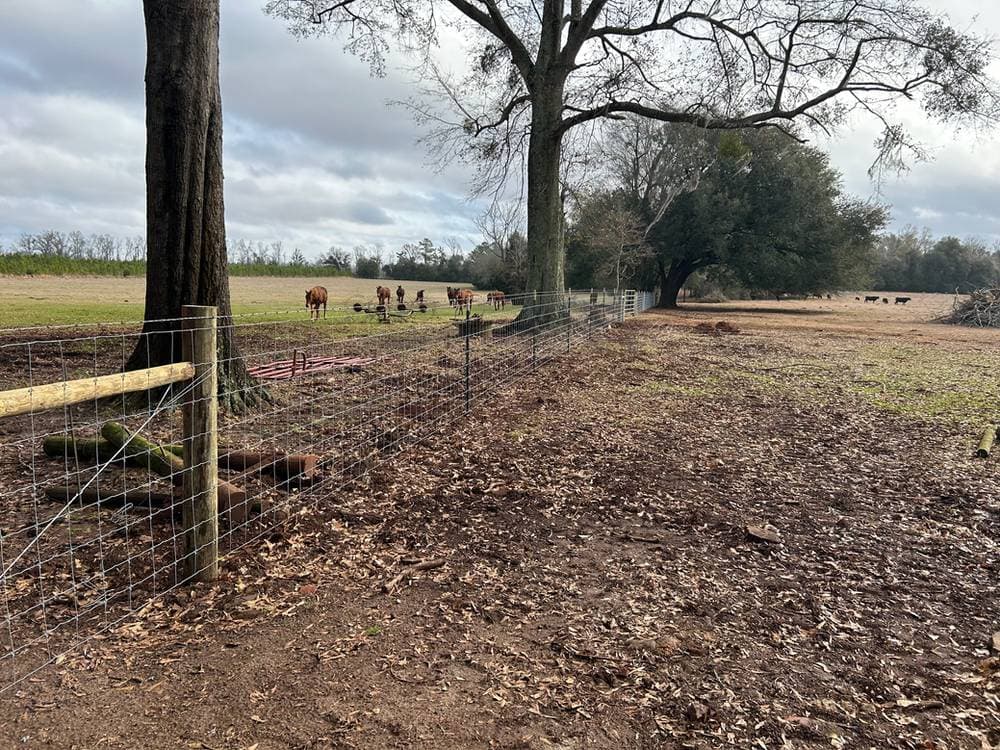
7 Powerful Tips for Choosing the Right Farm Fence
Choosing the right farm fence shapes daily operations, protects livestock and crops, and keeps costs under control. Use these seven tips to match materials and layout to your property, then install and maintain the system for long, reliable service.
1. Start with size and layout
Walk the property and sketch a simple plan.
- Boundaries: Confirm lines to avoid disputes and measure accurately for materials and budget.
- Zones: Mark pastures, crop blocks, waterways, and sensitive areas.
- Traffic: Place gates where equipment turns cleanly and where livestock naturally move.
- Access: Create lanes that connect pastures to water and handling facilities to shorten daily chores.
2. Match the fence to species and purpose
Different animals test fences in different ways, so select the lightest system that safely does the job.
- Cattle: High tensile smooth wire for long runs, barbed wire only where contact is minimal. For a more reliable setup, consider a professional Cattle Fence Installation service to ensure tension and spacing are done right.
- Horses: Smooth, highly visible barriers such as board with hot offset or tight horse mesh to reduce injury.
- Sheep and goats: Woven mesh with openings sized to prevent heads and kids from slipping through.
- Crop protection: Taller wildlife barriers or electrified offsets to deter deer and feral hogs.
- Rotational grazing: Temporary or semi permanent electric lines for quick reconfiguration.
3. Budget by total cost of ownership
Need Help?
Get expert fencing advice and free quotes. Our team is ready to help with your project.
Available Mon-Fri, 8am-6pm EST
The cheapest build on day one often costs more over time.
- Prioritize: Invest in strong corners, braces, and gates first, then expand in phases.
- Materials vs. lifespan: Class 3 galvanized wire and ground contact treated posts last longer and cut repairs.
- DIY vs. pro: Do straight runs yourself if skilled, but hire pros for corners, terrain challenges, and tensioning. A trusted Farm Fence Installation
team can help you build a long-lasting structure that minimizes costly repairs. - Hidden costs: Include tools, fasteners, energizers, vegetation control, and occasional hardware replacements.
4. Plan for climate, soil, and environment
Local conditions determine durability.
- Climate: Humidity and salt air accelerate corrosion. Choose heavier zinc coatings and stainless hardware near coasts.
- Soils: Sandy or saturated ground needs deeper posts and broader H brace geometry.
- Storms and wind: Drive posts rather than setting shallow holes. Align long runs to reduce wind load where possible.
- Wildlife and conservation: Use buried aprons for diggers, taller lines for jumpers, and avoid blocking natural drains.
5. Choose materials that fit the workload
Know the strengths and trade offs before you buy.
- Woven wire: Excellent containment and safety for mixed herds and young stock. Less climbing and fewer injuries.
- High tensile smooth wire: Efficient for long straight perimeters with fewer posts when properly tensioned. Learn more about proper High Tensile Fence Installation for large pastures and perimeter fencing.
- Barbed wire: Low cost perimeter where animal pressure is low, not ideal for small ruminants or horses.
- Board or rail: High visibility and curb appeal near road frontage and barn lots. Often paired with a hot offset or mesh.
- Electric: A psychological barrier that multiplies effectiveness of other fences and enables rotational grazing.
6. Install for strength and service life
Most failures trace back to corners, braces, and tension.
- Corners and ends: Machine driven posts set deep on firm soil. Build true H braces with correct span and diagonal.
- Tension: Pull to specification, terminate cleanly, and use the right knots, crimps, or ties for the product.
- Hardware: Size staples or clips to wire gauge and post material. Use corrosion resistant fasteners.
- Gates: Hang on oversized posts with latches animals cannot nudge open. Place pads so vehicles and stock pass safely. For durable, well-aligned gates, check out our Farm Gate Installation service.
- Safety: Keep hot offsets clear of metal panels and provide grounding that meets energizer requirements.
7. Maintain lightly and often
Small, timely tasks prevent expensive rebuilds.
- Routine checks: Walk the line seasonally and after storms. Look for lean, sag, broken clips, and bark rub.
- Vegetation control: Keep growth off electrified wires to maintain voltage.
- Spot repairs: Tighten a span, reset a staple, or replace a single post rather than letting problems spread. If the damage is widespread, our Farm Fence Repair service can restore your fence’s strength and alignment quickly.
- Protection: Treat wood where appropriate and touch up coatings on cut metal ends to slow corrosion.
- Record keeping: Note dates, sections repaired, and material types so future fixes go faster.
Conclusion
A fence is infrastructure. Start with a clear plan, choose materials that match species and climate, build corners and braces that hold tension, and follow a simple maintenance routine. The payoff is fewer escapes, healthier pastures, safer work areas, and a perimeter that stays straight for years.
Share this article
Related Posts
Need Help?
Get expert fencing advice and free quotes. Our team is ready to help with your project.
Available Mon-Fri, 8am-6pm EST
Related Posts
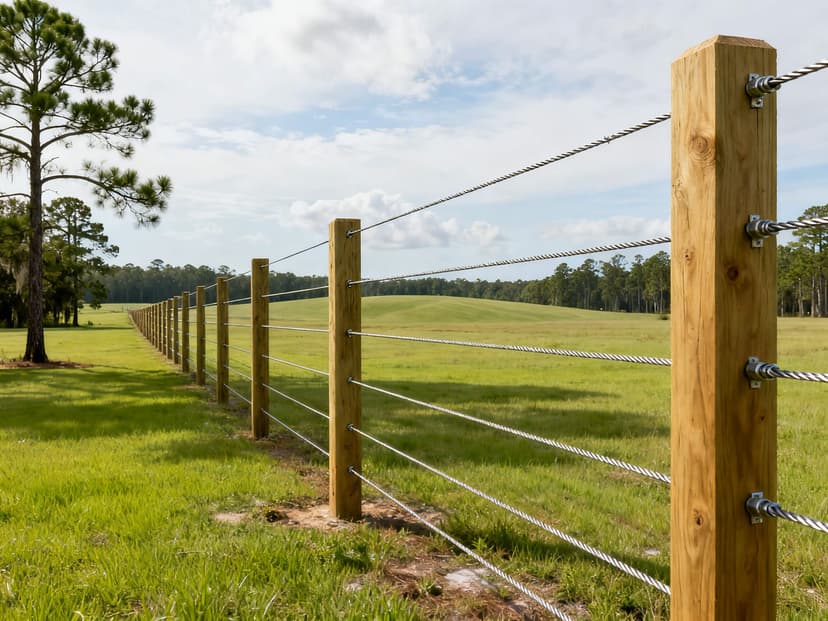
Cable Fence for Cattle: The SE Rancher's Durable Choice
Why Choose a Cable Fence System for Your SE Ranch? You need a strong, reliable fence to contain your cattle across large...
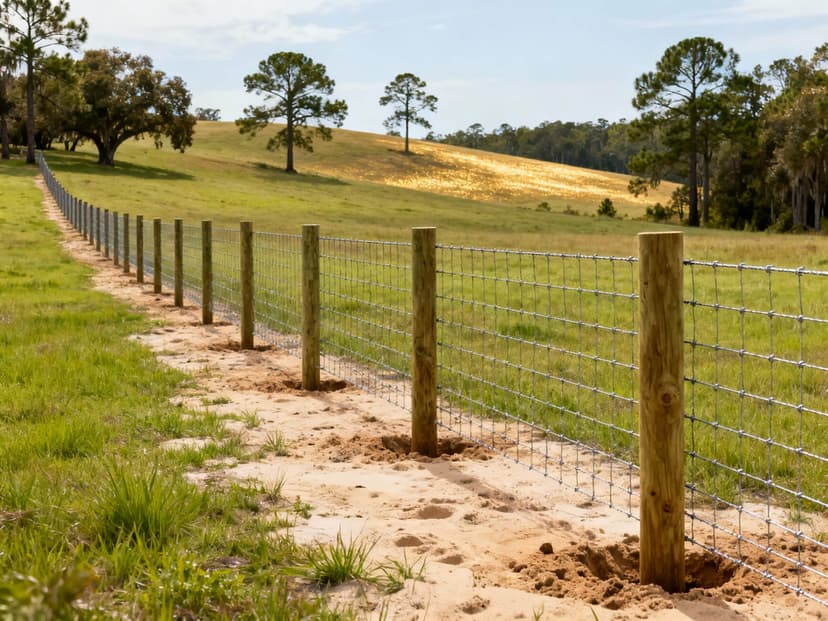
Cattle Fence Roll: The Complete Guide for Southeast Farms
Understanding Your Cattle Fence Roll Options When fencing a large operation, the type of wire you choose is a decision t...
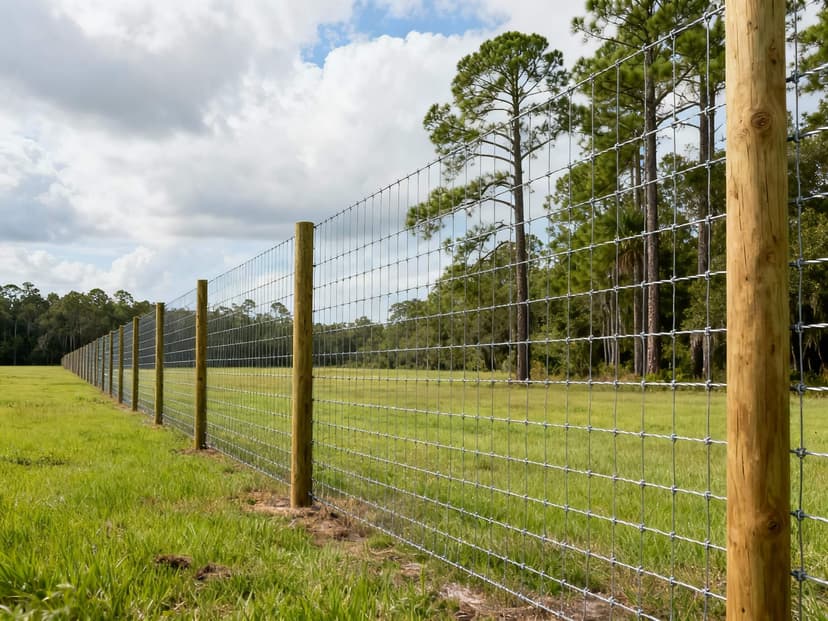
6 Proven Applications for a 6 Foot Field Fence
6 Proven Applications for a 6 Foot Field Fence As a farmer or rancher in the Southeast, you need a fencing solution that...
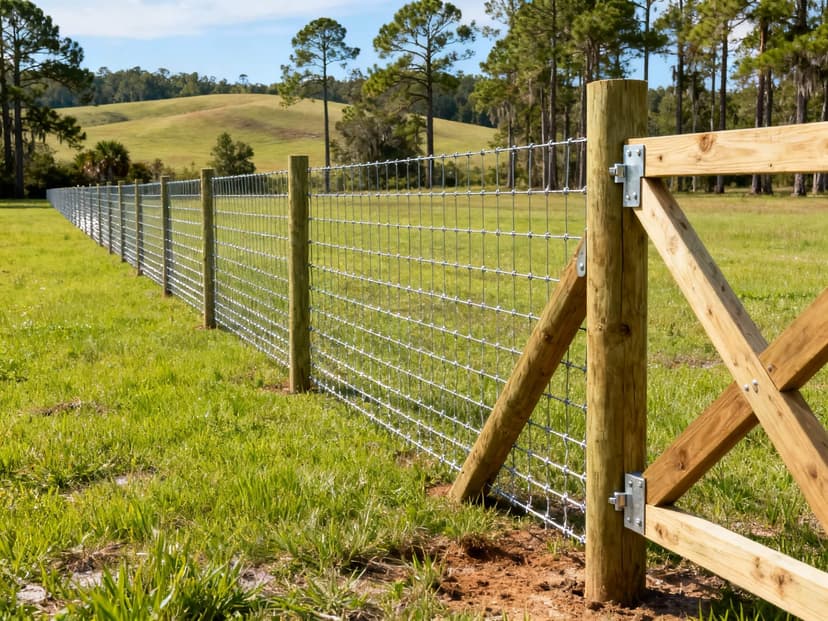
4 ft Field Fence: A Farmer's Guide to Cost & Setup
A Complete Guide to 4 ft Field Fence for Your Modern Farm For farmers and ranchers across the Florida Panhandle, South A...
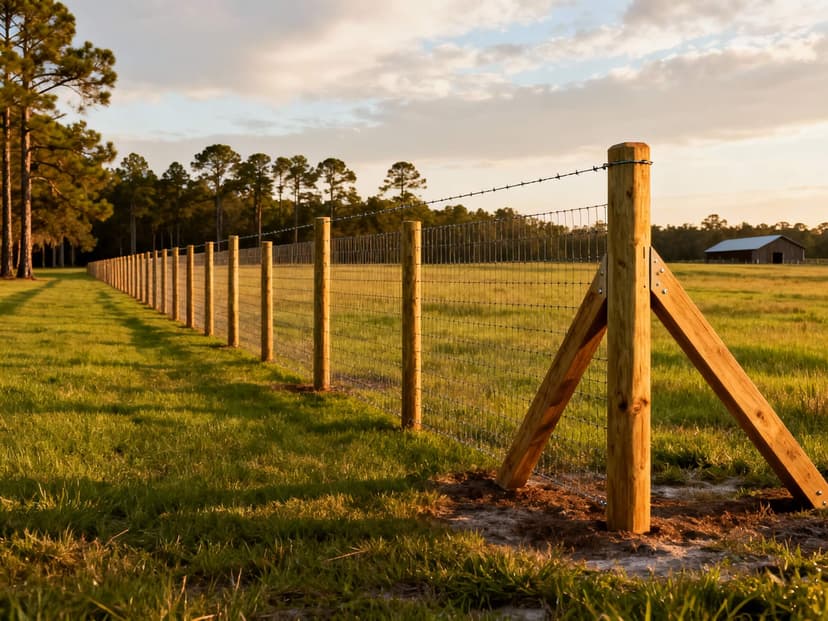
Livestock Wire Fence: A Pro's Guide for the Southeast
Planning and Material Selection for the Southeast A durable livestock wire fence starts long before the first post is dr...






